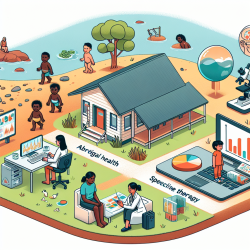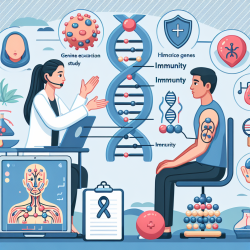Introduction
In the realm of scientific discourse, the interplay between charismatic and rationalized authority often shapes the public perception and acceptance of controversial research. This dynamic is particularly evident in the debates surrounding race and intelligence, as highlighted in the research article "Trying to make race science the 'civil' science: charisma in the race and intelligence debates" by Dasgupta, Panofsky, and Iturriaga. Understanding this interplay can offer valuable insights for practitioners in speech-language pathology, especially when considering how to communicate effectively and ethically in diverse and potentially contentious environments.
The Role of Charisma in Science
The study explores how charismatic authority can transform scientific debates into public dramas, where figures like Arthur Jensen become central characters. Charisma is not merely a tool for augmenting scientific authority but an interpretive resource that recasts professional conflicts as public spectacles. This transformation provides symbolic legitimacy to contentious research agendas, allowing them to persist despite their scientific merit being questioned.
Implications for Practitioners
For speech-language pathologists, understanding the role of charisma in scientific debates can enhance their ability to navigate professional challenges. Here are some key takeaways:
- Critical Evaluation: Practitioners should critically evaluate the sources of authority in their field, distinguishing between charismatic influence and evidence-based practice.
- Effective Communication: Recognizing the power of narrative and charisma can aid in crafting compelling, fact-based communication strategies that resonate with diverse audiences.
- Ethical Considerations: Being aware of how charisma can shape public perception helps practitioners maintain ethical standards and advocate for evidence-based practices in their interactions with stakeholders.
Encouraging Further Research
The article encourages practitioners to engage in further research on the interplay between charisma and scientific authority. By doing so, they can better understand how these dynamics influence public perception and policy decisions, ultimately improving outcomes for children and other clients.
Conclusion
Understanding the role of charisma in scientific debates offers valuable insights for speech-language pathologists. By critically evaluating charismatic influences and focusing on evidence-based practices, practitioners can enhance their communication strategies and advocate for ethical standards in their field.
To read the original research paper, please follow this link: Trying to make race science the “civil” science: charisma in the race and intelligence debates.










